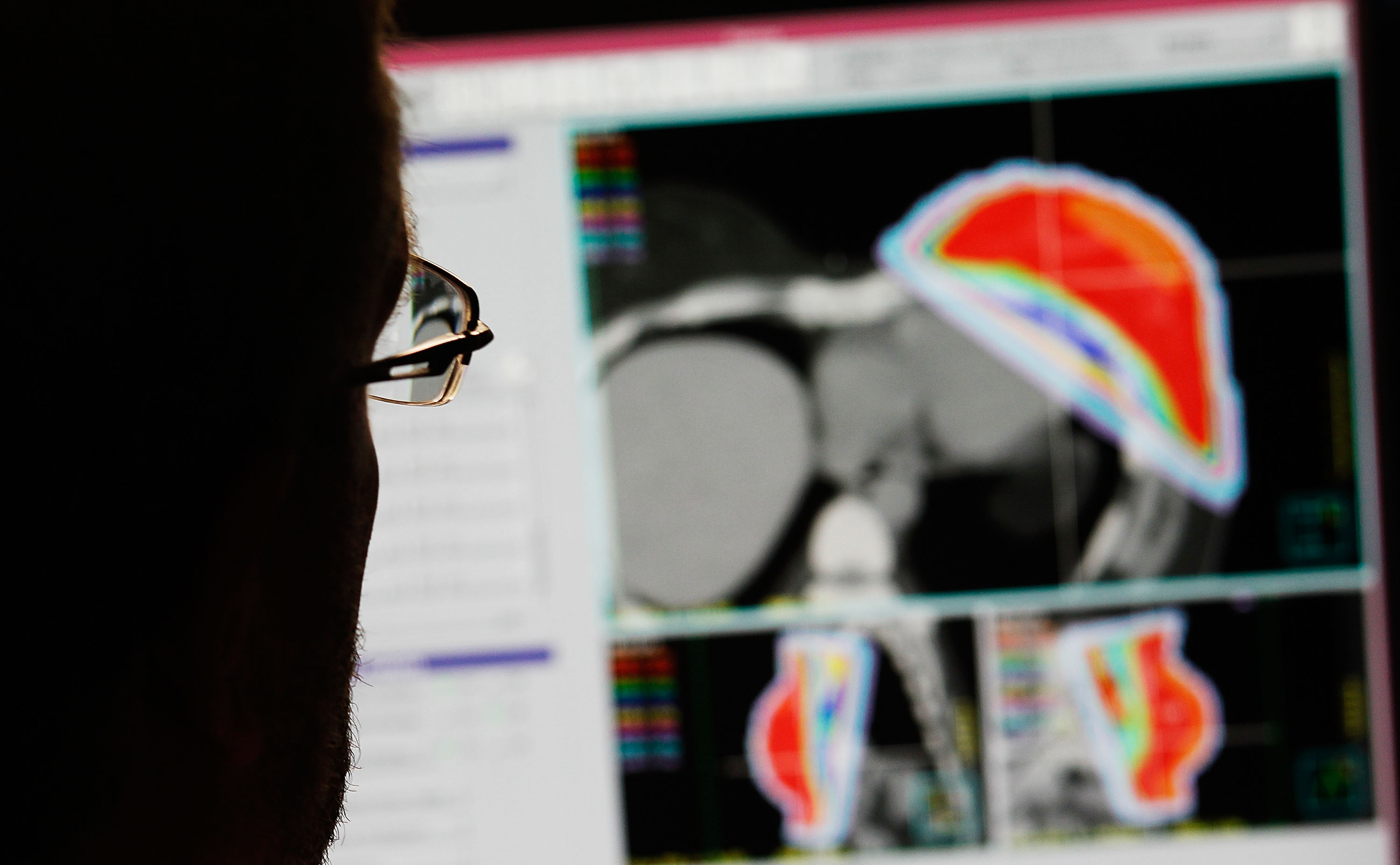AI can identify bowel cancer ‘in less than a second’
Project leader says system could cut deaths from the disease

A free daily email with the biggest news stories of the day – and the best features from TheWeek.com
You are now subscribed
Your newsletter sign-up was successful
Researchers have developed an artificial intelligence (AI) programme that can detect signs of bowel cancer in “less than a second”.
The system - developed by researchers at Showa University in Yokohama, Japan - detects potentially cancerous tumours by taking pictures during a colonoscopy and comparing them with 30,000 reference images almost instantaneously.
In recent tests, says Alphr, the system successfully identified 90% of colorectal adenomas - benign tumours that can evolve into bowel cancer - from a sample of 250 patients.
The Week
Escape your echo chamber. Get the facts behind the news, plus analysis from multiple perspectives.

Sign up for The Week's Free Newsletters
From our morning news briefing to a weekly Good News Newsletter, get the best of The Week delivered directly to your inbox.
From our morning news briefing to a weekly Good News Newsletter, get the best of The Week delivered directly to your inbox.
Presenting the AI system at the United European Gastroenterology event in Barcelona, project leader is that it can assess patients in real time, removing the need to examine results after a colonoscopy has been performed.
“We believe these results are acceptable for clinical application and our immediate goal is to obtain regulatory approval for the diagnostic system”, he adds.
The immediacy of the AI-powered system could help “decrease the risk of colorectal cancer and, ultimately, cancer-related death”, Dr Mori said.
It’s not just cancer treatment that can benefit from AI. Several universities have developed systems that can detect diseases before medical symptoms appear.
A free daily email with the biggest news stories of the day – and the best features from TheWeek.com
A team of researchers from the University of Bari, in Italy, has created an AI programme that is able to detect early signs of Alzheimer’s by comparing a patient’s MRI scans with a range of reference images. This can help doctors identify the disease up to a decade before visible symptoms show.
A similar programme that can detect the disease through an eye test has been created by scientists from several universities across California, says Digital Trends.
-
 What are the best investments for beginners?
What are the best investments for beginners?The Explainer Stocks and ETFs and bonds, oh my
-
 What to know before filing your own taxes for the first time
What to know before filing your own taxes for the first timethe explainer Tackle this financial milestone with confidence
-
 The biggest box office flops of the 21st century
The biggest box office flops of the 21st centuryin depth Unnecessary remakes and turgid, expensive CGI-fests highlight this list of these most notorious box-office losers
-
 How cybercriminals are hacking into the heart of the US economy
How cybercriminals are hacking into the heart of the US economySpeed Read Ransomware attacks have become a global epidemic, with more than $18.6bn paid in ransoms in 2020
-
 Language-learning apps speak the right lingo for UK subscribers
Language-learning apps speak the right lingo for UK subscribersSpeed Read Locked-down Brits turn to online lessons as a new hobby and way to upskill
-
 Brexit-hobbled Britain ‘still tech powerhouse of Europe’
Brexit-hobbled Britain ‘still tech powerhouse of Europe’Speed Read New research shows that UK start-ups have won more funding than France and Germany combined over past year
-
 Playing Cupid during Covid: Tinder reveals Britain’s top chat-up lines of the year
Playing Cupid during Covid: Tinder reveals Britain’s top chat-up lines of the yearSpeed Read Prince Harry, Meghan Markle and Dominic Cummings among most talked-about celebs on the dating app
-
 Brits sending one less email a day would cut carbon emissions by 16,000 tonnes
Brits sending one less email a day would cut carbon emissions by 16,000 tonnesSpeed Read UK research suggests unnecessary online chatter increases climate change
-
 Reach for the Moon: Nokia and Nasa to build 4G lunar network
Reach for the Moon: Nokia and Nasa to build 4G lunar networkSpeed Read Deal is part of the US space agency’s plan to establish human settlements on the lunar surface
-
 iPhone 12 launch: what we learned from the Apple ‘Hi, Speed’ event
iPhone 12 launch: what we learned from the Apple ‘Hi, Speed’ eventSpeed Read Tech giant unveils new 5G smartphone line-up
-
 Russian agency behind US election meddling ‘created fake left-wing news site’
Russian agency behind US election meddling ‘created fake left-wing news site’Speed Read Facebook says real reporters were hired by fake editors to write about US corruption